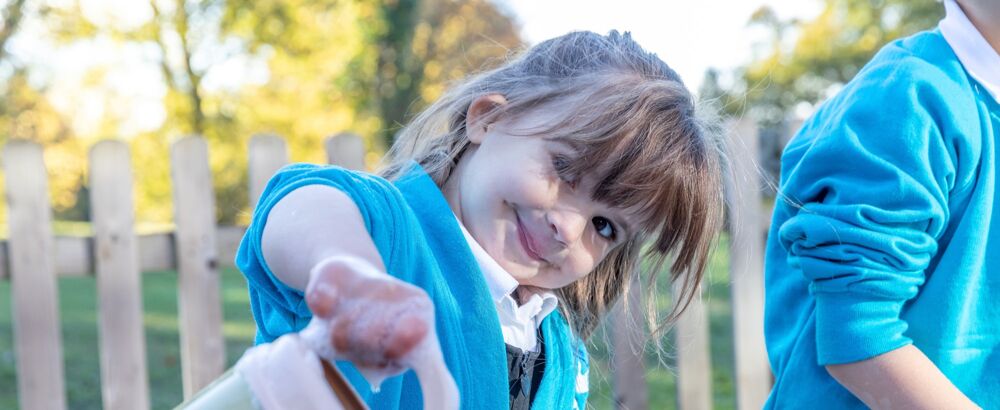Learning at Jupiter Primary
Curriculum Intent
In the Autumn term 2021, we reviewed our curriculum to ensure it is still fit for purpose for our current pupils in light of our changing cohort and the significant changes to the world in which we live, including complex ecological, social and economic challenges. We recognise our duty to prepare them for the world which they will inherit.
Staff met together with representative parents and governors to discuss what we all believed the children at Jupiter needed to learn during their time with us. We considered elements arising from our local area and community, as well as life skills that we felt would benefit our children in their current and future lives. Our school values, outdoor learning and their health and well-being were all areas we wanted to remain a strong focus. The drivers we chose to run through our curriculum approach were as follows:
-
Teamwork
-
Problem Solving, including resolving conflict and creative thinking
-
Understanding Others, including different cultures, ages and generations
-
Life Skills, including careers and independence
We have identified the knowledge, understanding, skills and opportunities within each National Curriculum subject we offer that will enable the children in our care to be valuable and productive members of society. We have considered where each element of the learning takes place in order to build on previous learning and to prepare our children for what is to come. In this way, children's knowledge, understanding and skills build and deepen over time. Our subject pages offer more detail on the progression within each subject.
Curriculum Implementation
At Jupiter Primary School we believe that pupils learn best when they are inspired by imaginative and creative activities and learning opportunities. We have developed a creative, flexible and challenging curriculum for our school which not only incorporates all the statutory requirements of the National Curriculum, but also includes areas of study which we believe will inspire our pupils and has our community and our values at its heart. We plan a cross curricular approach where pupils are able to use skills from one area of the curriculum to advance their learning in another area. For example, they will use mathematical skills for data collection to find out about our local environment and then use their literacy skills to write a leaflet about the local environment using the geographical knowledge they gained. In addition, staff will add additional valuable 'cultural capital' to our offer.
We have identified the elements of teaching and learning which we believe make the most difference to children's learning and have an expectation that we will see these in all lessons. These include high expectations for all, good assessment, strategies for independence, effective feedback and modelling, inclusive strategies and a high element of discussion and thinking skills.
Curriculum Impact
Our new curriculum is still in its early days. However, we monitor its impact in a wide variety of ways to ensure that all our children are making good progress towards the end of year expectations for their year group. We want to know what children know, remember and can do, We therefore assess our children, both in the lessons as part of our everyday practice (through questioning, looking at their work and discussing their learning with them) and periodically through 'summative' tasks or assessments to see what they have learned.
School leaders will also review the impact of the curriculum more widely through their monitoring activities. This will include observations of the children learning, looking at their work, discussing their learning with them and looking at their outcomes from tests and other assessments. Each term, Senior Leaders will meet with teachers to discuss progress of each child and if there are concerns, additional provision may be offered, such as an intervention, additional support, resources, or tutoring. In addition, we will try to identify pupils with a particular aptitude for a subject so that we can nurture and encourage these interests and skills in a variety of ways.


